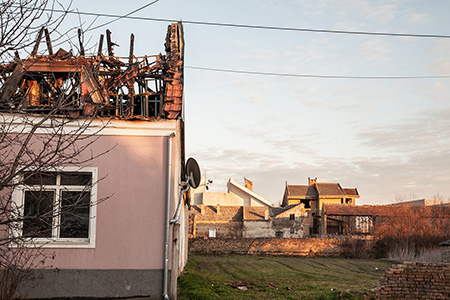Although the Coast was spared from hurricanes this year, the U.S. is experiencing its costliest year ever for severe storms, with insured losses exceeding $50 billion through the end of September, according to the Insurance Information Institute. Inflation and higher construction costs continue to plague the industry, and this fact impacts your insurance rate.
An effective way to reduce your property insurance costs is through enhanced mitigation. Insurance companies apply discounts for clients who maintain and protect their structures to avoid severe losses. Be sure your insurance agent is aware of improvements made to your property so you will receive maximum credits.
FIRE PREVENTION
Installing a centrally monitored alarm system can help detect and suppress fires early and reduce potential structural damage.
THEFT PROTECTION
Enhancing security protection by installing alarm systems, surveillance cameras and strong locks can inhibit burglars and protect your property. Illuminating your exterior also can make the property less attractive to potential intruders.
STORM-RESISTANT FEATURES
Installing impact-resistant glass or storm shutters and reinforcing windows and doors can help protect against wind damage, and discounts typically are available on an insurance policy. A fortified roof and proper gutter drainage systems can minimize the risk of water damage during heavy rains. Many companies will not insure a roof over 15 years old due to the high rate of failure. Take advantage of retrofit grants and new methods for fortifying your shingles with glue techniques and replacing missing shingles or replacing the entire roof when there is granular deterioration or curling edges on shingles. On a metal roof, monitor for leaks, rust and loosening to determine if screws must be replaced or tightened.
FLOOD MITIGATION
Anywhere it rains, flooding is possible. Elevating electrical systems, appliances and valuables can minimize damage from rising water.
PROPER MAINTENANCE
Regularly inspecting and maintaining the building’s structure and systems can help prevent potential damage and reduce your liability exposure from someone being injured on your premises. Remove any excess debris that may attract pests or become a fire hazard. Repair busted driveways and sidewalks that can cause tripping. Remove unhealthy trees, and trim back limbs that are overhanging or touching the structure that can cause damage. Insulate exposed pipes to prevent freezing.
Take precautions to avoid having to make a claim, as frequent small claims will drive up your insurance rate significantly. Keep small claims from happening, and reserve your insurance protection for a major loss.



